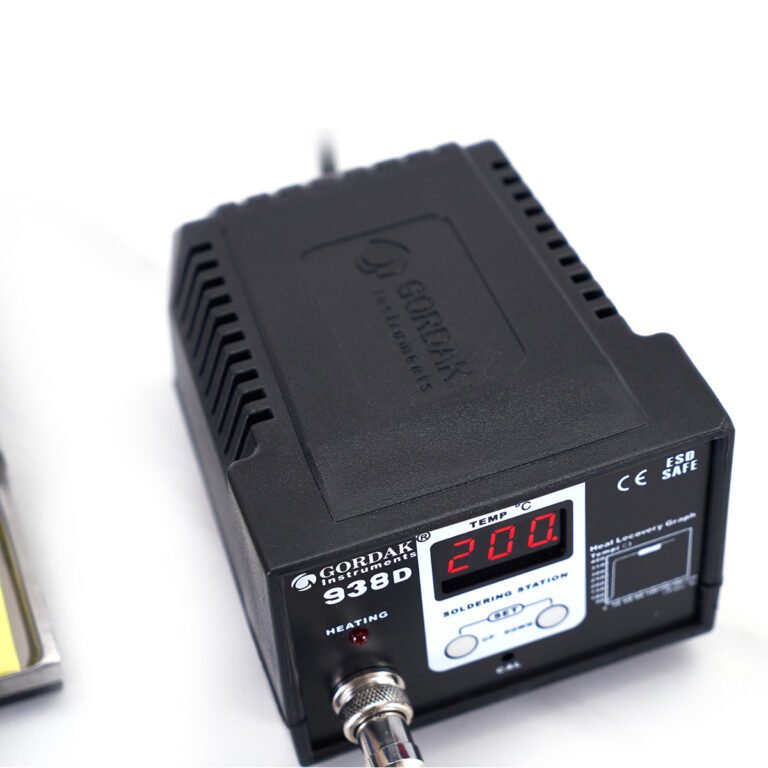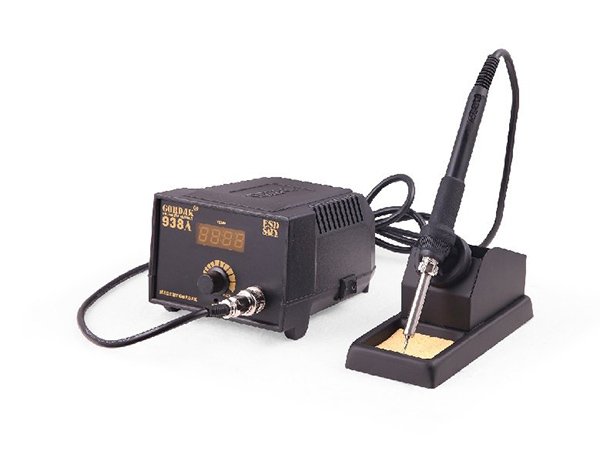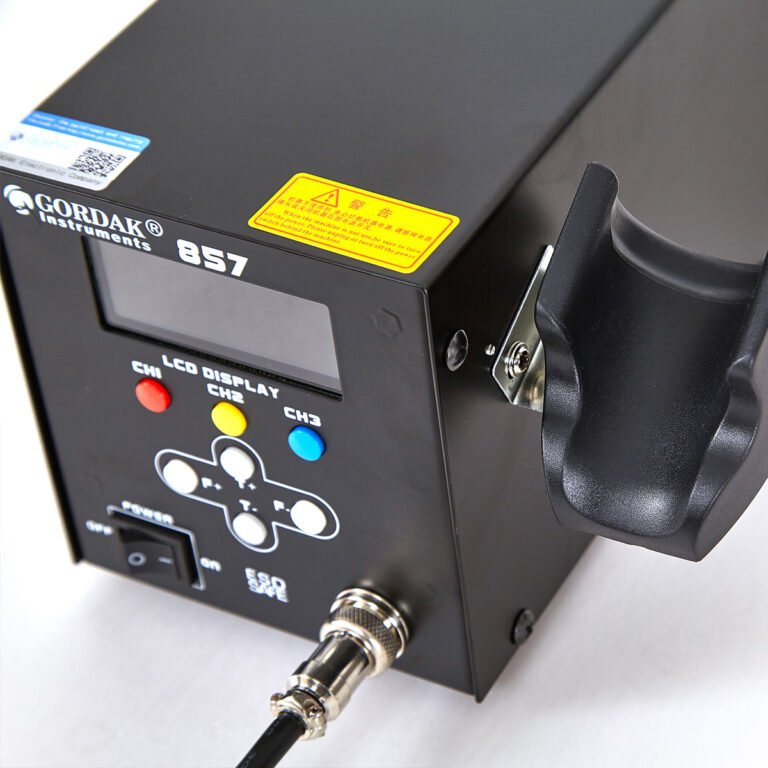A professional soldering setup requires a variety of tools to ensure precision, efficiency, and safety. Whether you’re working on small electronics projects or large-scale manufacturing, having the right tools can make a significant difference in the quality of your work. Here’s a guide to the essential tools for a professional soldering setup.
1. Soldering Iron or Soldering Station
- Soldering Iron: A high-quality soldering iron with adjustable temperature control is crucial for precise soldering. Look for an iron with a comfortable grip and interchangeable tips.
- Soldering Station: For more advanced needs, a soldering station offers better temperature control, faster heat-up times, and additional features such as digital displays and hot air tools.
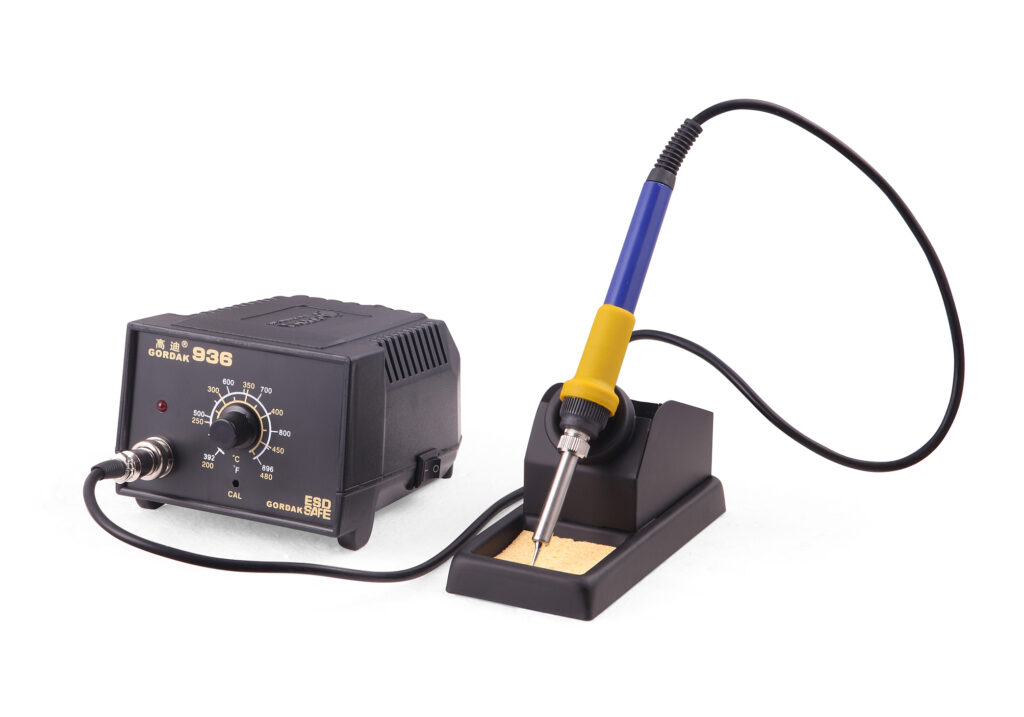
2. Soldering Tips
- Variety of Tips: Different soldering tasks require different tips. Fine-point tips are ideal for small components, while chisel tips are suitable for larger joints. Having a variety of tips on hand allows you to tackle various projects effectively.
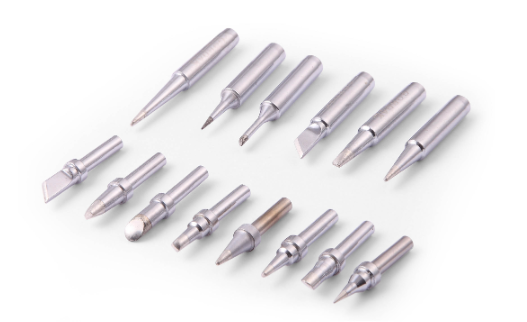
3. Solder
- Lead-Free Solder: Lead-free solder is environmentally friendly and safer to use. It typically requires higher temperatures than leaded solder.
- Rosin-Core Solder: Rosin-core solder contains flux within the solder wire, which helps clean and prepare the joint during soldering.
4. Flux
- Liquid Flux: Liquid flux is applied to the joint before soldering to remove oxidation and improve solder flow.
- Flux Paste: Flux paste is thicker and can be applied to specific areas, providing precise control over where the flux is used.
5. Desoldering Tools
- Desoldering Pump: Also known as a solder sucker, this tool helps remove solder from joints. It’s essential for rework and repair tasks.
- Desoldering Braid: This copper braid absorbs excess solder, allowing you to clean up solder joints and remove components from PCBs.

6. Tweezers
- Precision Tweezers: Fine-tipped tweezers are essential for handling small components and positioning them accurately on the PCB.
7. Magnification Tools
- Magnifying Lamp: A magnifying lamp provides both illumination and magnification, making it easier to see small components and solder joints clearly.
- Head-Mounted Magnifier: This tool allows for hands-free magnification, ideal for detailed work on small components.

8. Work Surface and Mat
- ESD-Safe Mat: An ESD (Electrostatic Discharge) mat protects sensitive components from static electricity. It also provides a clean, organized workspace.
- Heat-Resistant Work Surface: A heat-resistant mat or surface protects your workbench from high temperatures and solder spills.
9. Fume Extractor
- Solder Fume Extractor: Soldering produces fumes that can be harmful if inhaled. A fume extractor removes these fumes from the work area, ensuring a safer working environment.
10. Wire Cutters and Strippers
- Wire Cutters: Sharp wire cutters are essential for trimming component leads and wires.
- Wire Strippers: Wire strippers make it easy to remove insulation from wires without damaging the conductive core.
11. Helping Hands and PCB Holders
- Helping Hands: These adjustable clamps hold components and PCBs in place, freeing up your hands for soldering.
- PCB Holders: PCB holders provide stable support for the board, allowing you to work on it from various angles.
12. Multimeter
- Digital Multimeter: A multimeter is essential for testing circuits, measuring voltage, current, and resistance, and diagnosing issues in electronic components.
13. Thermometer
- Soldering Iron Thermometer: This tool helps you check and calibrate the temperature of your soldering iron, ensuring it’s at the correct temperature for your tasks.
14. Heat Gun
- Hot Air Rework Station: A heat gun or hot air rework station is useful for tasks like reflowing solder, heat-shrinking tubing, and removing surface-mounted components.

15. Cleaning Tools
- Tip Cleaner: A brass wool or sponge tip cleaner helps remove oxidation and excess solder from the soldering iron tip.
- Isopropyl Alcohol and Brushes: Isopropyl alcohol and brushes are used to clean PCBs and remove flux residue after soldering.
Conclusion
A professional soldering setup is equipped with a variety of tools designed to enhance precision, efficiency, and safety. By investing in high-quality soldering irons or stations, a range of soldering tips, and essential accessories like flux, desoldering tools, and fume extractors, you can ensure the success of your soldering projects. Proper maintenance and organization of these tools will further contribute to a productive and effective soldering environment.
For more information on Gordak’s range of precision soldering tools and accessories, contact us at info@gordakelec.com.
Soldering Accessories & Tools
Benefits of Using Soldering Accessories
Soldering Accessories: The Fundamentals You Will Need To Get Established
Soldering Accessories: A Must Have For Every Electrical Personnel
Important Qualities To Consider When Choosing Soldering Accessories
12 Soldering Tool And Accessories That Will Make Soldering A Lot Easier

